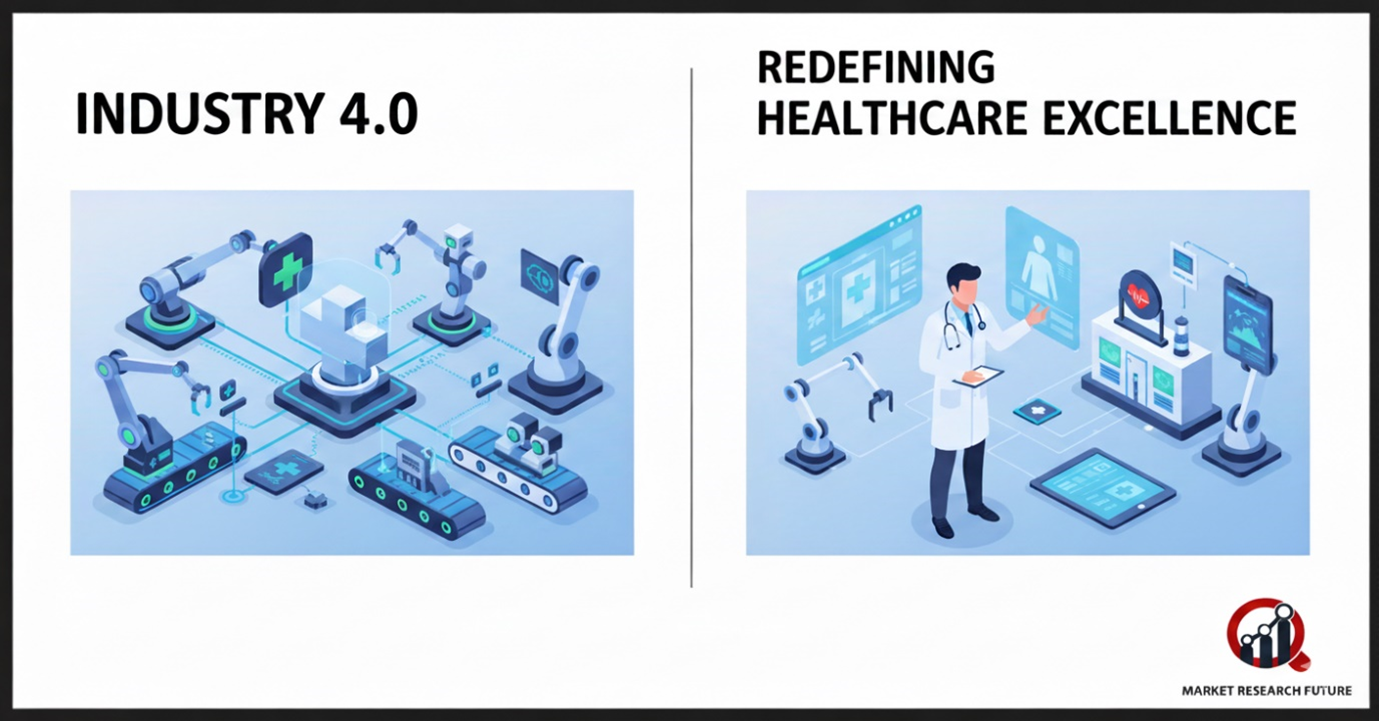Industry 4.0- Redefining Healthcare Excellence

AI, 5G, the Internet of Things (IoT), and automation are not just ideas from the future; they are changing how we live, work, and even heal. Technology is becoming a part of our daily lives without us even noticing. For example, smart assistants that respond to voice commands and wearable devices that keep track of our vital signs in real time. The healthcare and pharmaceutical industries are now using the power of Industry 4.0, the time of digital transformation, to provide care that is more accurate, efficient, and tailored to each patient. This revolution is opening up new possibilities that are changing what it means to be truly excellent in healthcare.
Important Parts of Industry 4.0 in Healthcare
The Internet of Things (IoT)
In healthcare, the IoT is now the heart of Industry 4.0. It lets you collect real-time patient data like heart rate, oxygen levels, and medication adherence by linking wearable sensors, smart medical devices, and hospital equipment. This system connects healthcare professionals so they can keep an eye on patients from afar, respond more quickly to emergencies, and give proactive, ongoing care.
Analytics and Big Data
The digitalization of healthcare has led to a huge amount of information. Big data analytics turns this information into useful insights that can help find health trends, make diagnoses better, and make treatment plans better. Data-driven decisions are becoming the basis of modern healthcare. They can help with everything from predicting disease outbreaks to personalized medicine.
Artificial Intelligence and Machine Learning
AI and ML are changing the way clinical work is done. They help doctors figure out what's wrong with patients, look at scans, guess how well a treatment will work, and find the best ways to treat them. AI-powered chatbots and virtual health assistants are also making telemedicine services better by giving patients instant help, helping them make appointments, and reminding them to take their medications. This makes the services more engaging and easier to get to.
Robotics and Automation
Robotics and automation are changing what it means to be precise and productive in healthcare. During complicated surgeries, robots help surgeons, which speeds up recovery and makes the surgery more accurate. Automated systems take care of everyday hospital tasks like giving out medicine and managing logistics, which frees up medical staff to spend more time on patient care instead of paperwork.
Telemedicine and Telehealth: Industry 4.0 has made telemedicine grow faster than ever. Patients can talk to doctors from anywhere thanks to virtual consultations, digital health records, and remote monitoring systems. This change fills in the gaps for people who live in remote or underserved areas, making sure that good healthcare is only a click away.
Blockchain technology keeps patient records safe, clear, and impossible to change. It lets healthcare providers share medical data easily while keeping privacy and integrity, making a safe digital environment for patient care.
Security on the Internet
Cybersecurity is very important now that systems are more connected. Industry 4.0 shows how important it is to have strong digital security to protect private health information and keep people trusting technology-based care.
Final words
It's not just about new ideas when healthcare adopts Industry 4.0; it's about changing the way things work. It improves patient outcomes, makes operations more efficient, and drives medical excellence by combining intelligence, connectivity, and automation. But for the industry to reach its full potential, it needs to keep working on problems like data privacy, interoperability, and workforce readiness. Digital technology is the future of healthcare, and Industry 4.0 is paving the way for smarter, safer, and more connected care.

Leave a Comment